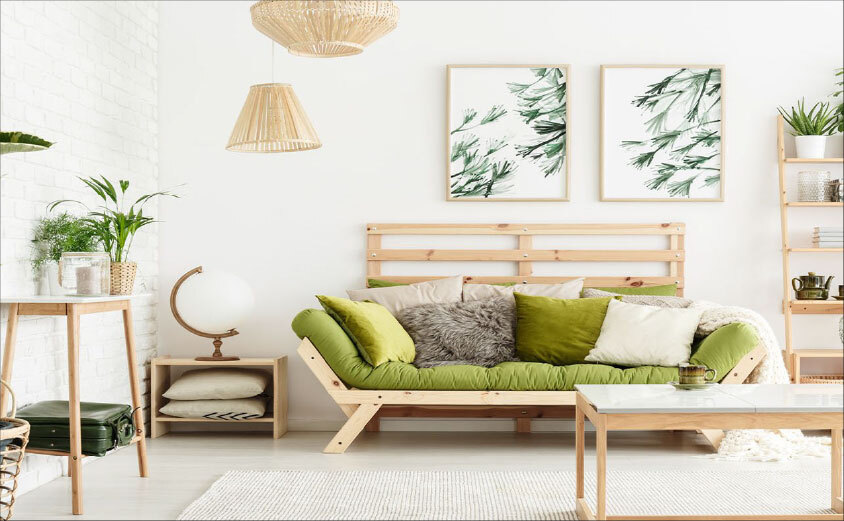Top Trends in Thailand’s Eco-Friendly Furniture Market: From Bamboo and Rattan to Recycled Wood Solutions

“Thailand's furniture market is currently undergoing significant transformations influenced by changing consumer behavior, global trade dynamics, technological innovation, and increased emphasis on sustainability. Positioned as a major furniture manufacturing hub in Southeast Asia, Thailand's industry is well-equipped to meet both domestic and international demand. This sector encompasses a wide range of products, including home, office, outdoor, and hospitality furniture, all of which are increasingly shaped by global lifestyle changes and the rising need for customized, sustainable options.
A key trend in Thailand's furniture market is the escalating demand for eco-friendly and sustainable products. With a growing awareness of environmental issues, consumers are prioritizing the materials used in furniture, opting for durable items sourced responsibly. In response, manufacturers are producing furniture from sustainably harvested woods, bamboo, rattan, and recycled materials. Certifications such as FSC (Forest Stewardship Council) are becoming crucial selling points, particularly in export markets like Europe, North America, and Japan. Additionally, Thai manufacturers are embracing circular economy principles by designing modular, repairable, and recyclable products to align with global sustainability objectives.”
Thailand furniture market was valued at USD 1,398 million in 2023 and is estimated to reach a value of USD 3,482 million by 2030 with a CAGR of 10.1% during the forecast period,
The market also reflects a strong connection to craftsmanship and cultural heritage. Traditional woodworking and weaving techniques remain integral to Thai culture, with artisans in regions such as Chiang Mai and Bangkok creating intricate designs. Contemporary manufacturers are now merging these artisanal skills with modern aesthetics, catering to local and international customers who appreciate authenticity alongside visual appeal. Products that feature handwoven rattan, teakwood, and lacquer finishes not only resonate with cultural significance but also stand out in a competitive marketplace.
Urbanization is further influencing demand patterns in Thailand. As more consumers flock to cities like Bangkok, Pattaya, and Chiang Rai, the prevalence of smaller living spaces has surged. This shift has sparked increased interest in multifunctional, space-saving furniture. Customized modular units are particularly popular among young professionals and families residing in apartments. Lightweight, foldable, and adaptable furniture that meets changing spatial needs is in high demand, often enhanced by digital design tools that allow consumers to visualize configurations prior to purchase.
E-commerce is also a transformative force reshaping the Thai furniture market. Online platforms have broadened access to diverse product offerings, enabling consumers to compare designs, prices, and reviews before making decisions. Social media platforms like Facebook, Instagram, and TikTok are becoming essential for product marketing, with influencers significantly affecting consumer preferences. Virtual showrooms and augmented reality (AR) tools are enhancing the shopping experience, especially during the COVID-19 pandemic when physical store access has been limited. In response to the convenience sought by younger, tech-savvy consumers, furniture brands are increasingly leveraging digital technologies to maintain competitiveness.
In addition to digital trends, export dynamics are critically shaping the industry landscape. Thailand's furniture exports have been on a steady rise, bolstered by government initiatives aimed at improving trade and logistics infrastructure. Major export destinations include the United States, Europe, China, and neighboring ASEAN countries. Nevertheless, manufacturers face challenges such as tariffs, rising raw material costs, and disruptions within global supply chains. To navigate these challenges, businesses are diversifying their markets, exploring new partnerships, and investing in local sourcing to minimize reliance on unstable imports.
An emerging trend is the growing focus on wellness and ergonomic furniture. As awareness of the impact of furniture on health and well-being increases especially with the rise of remote work and home-based living demand for adjustable desks and ergonomic chairs is on the rise. Thai manufacturers are collaborating with designers and health experts to develop furniture solutions that seamlessly integrate functionality, comfort, and aesthetics.
Price sensitivity remains a significant factor influencing trends in the market. While there is a notable demand for premium and luxury furniture, a substantial number of consumers are still seeking affordable yet quality products. This has prompted manufacturers to innovate by creating tiered product lines that cater to various income levels without sacrificing design quality. Budget-friendly furniture options constructed from engineered wood, laminates, and recycled composites are gaining traction among cost-conscious consumers.